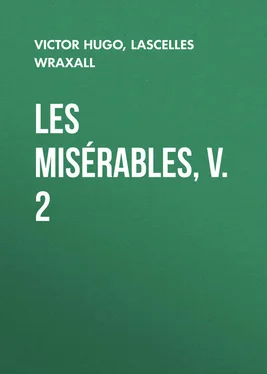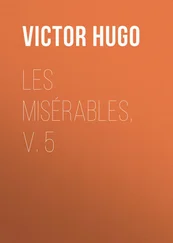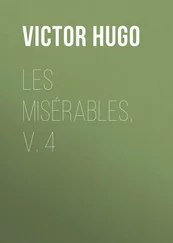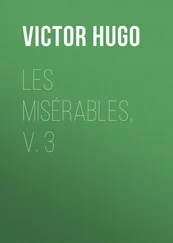Lascelles Wraxall - Les Misérables, v. 2
Здесь есть возможность читать онлайн «Lascelles Wraxall - Les Misérables, v. 2» — ознакомительный отрывок электронной книги совершенно бесплатно, а после прочтения отрывка купить полную версию. В некоторых случаях можно слушать аудио, скачать через торрент в формате fb2 и присутствует краткое содержание. Жанр: literature_19, foreign_antique, foreign_prose, на английском языке. Описание произведения, (предисловие) а так же отзывы посетителей доступны на портале библиотеки ЛибКат.
- Название:Les Misérables, v. 2
- Автор:
- Жанр:
- Год:неизвестен
- ISBN:нет данных
- Рейтинг книги:5 / 5. Голосов: 1
-
Избранное:Добавить в избранное
- Отзывы:
-
Ваша оценка:
- 100
- 1
- 2
- 3
- 4
- 5
Les Misérables, v. 2: краткое содержание, описание и аннотация
Предлагаем к чтению аннотацию, описание, краткое содержание или предисловие (зависит от того, что написал сам автор книги «Les Misérables, v. 2»). Если вы не нашли необходимую информацию о книге — напишите в комментариях, мы постараемся отыскать её.
Les Misérables, v. 2 — читать онлайн ознакомительный отрывок
Ниже представлен текст книги, разбитый по страницам. Система сохранения места последней прочитанной страницы, позволяет с удобством читать онлайн бесплатно книгу «Les Misérables, v. 2», без необходимости каждый раз заново искать на чём Вы остановились. Поставьте закладку, и сможете в любой момент перейти на страницу, на которой закончили чтение.
Интервал:
Закладка:
Still it is incontestable that what triumphed at Waterloo; what smiled behind Wellington; what procured him all the marshals' staffs of Europe, including, by the way, that of Marshal of France; what rolled along joyously the wheelbarrows of earth mingled with bones to erect the foundation for the lion, on whose pedestal is inscribed the date June 18, 1815; what encouraged Blücher in cutting down the routed army; and what from the plateau of Mont St. Jean hovered over France like a prey, – was the counter-revolution. It is the counter-revolution that muttered the hideous word "Dismemberment"; but on reaching Paris it had a close view of the crater, it felt that the ashes burned its feet, and it reflected. It went back to the job of stammering a charter.
Let us only see in Waterloo what there really is in it. There is no intentional liberty, for the counter-revolution was involuntarily liberal in the same way as Napoleon, through a corresponding phenomenon, was involuntarily a Revolutionist. On June 18, 1815, Robespierre on horseback was thrown.
CHAPTER XVIII
RESTORATION OF DIVINE RIGHT
With the fall of the Dictatorship, an entire European system crumbled away, and the Empire vanished in a shadow which resembled that of the expiring Roman world. Nations escaped from the abyss as in the time of the Barbarians; but the Barbarism of 1815, which could be called by its familiar name the counter-revolution, had but little breath, soon began to pant, and stopped. The Empire, we confess, was lamented, and by heroic eyes, and its glory consists in the sword-made sceptre; the Empire was glory itself. It had spread over the whole earth all the light that tyranny can give, – a dim light, we will say, an obscure light; for when compared with real day, it is night. This disappearance of the night produced the effect of an eclipse.
Louis XVIII. re-entered Paris, and the dances of July 8 effaced the enthusiasm of March 20. The Corsican became the antithesis of the Bearnais, and the flag on the dome of the Tuileries was white. The exile was enthroned, and the deal table of Hartwell was placed before the fleur-de-lysed easy-chair of Louis XIV. People talked of Bouvines and Fontenoy as if they had occurred yesterday, while Austerlitz was antiquated. The throne and the altar fraternized majestically, and one of the most indubitable forms of the welfare of society in the 19th century was established in France and on the Continent, – Europe took the white cockade. Trestaillon was celebrated, and the motto, nec pluribus impar , reappeared in the stone beams representing a sun on the front of the barracks, on the Quai d'Orsay. Where there had been an Imperial Guard, there was a "red household;" and the arch of the Carrousel, if loaded with badly endured victories, feeling not at home in these novelties, and perhaps slightly ashamed of Marengo and Arcola, got out of the difficulty by accepting the statue of the Duc d'Angoulême. The cemetery of the Madeleine, a formidable public grave in '93, was covered with marble and jasper, because the bones of Louis XVI. and Marie Antoinette were mingled with that dust. In the moat of Vincennes a tomb emerged from the ground, as a reminder that the Duc d'Enghien died there in the same month in which Napoleon was crowned. Pope Pius VII., who had performed the ceremony very close upon that death, tranquilly blessed the downfall, as he had blessed the elevation. There was at Schönbrunn a shadow four years of age, whom it was seditious to call the King of Rome. And these things took place, and these kings regained their thrones, and the master of Europe was put in a cage, and the old regime became the new, and the light and the shadow of the earth changed places, because on the afternoon of a summer day a peasant boy said to a Prussian in a wood, "Go this way and not that!"
That 1815 was a sort of melancholy April; the old unhealthy and venomous realities assumed a new aspect. Falsehood espoused 1789; divine right put on the mask of a charter; fictions became constitutional; prejudices, superstitions, and after-thoughts, having article fourteen in their hearts, varnished themselves with liberalism. The snakes cast their slough. Man had been at once aggrandized and lessened by Napoleon; idealism, in this reign of splendid materialism, received the strange name of ideology. It was a grave imprudence of a great man to ridicule the future; but the people, that food for powder, so fond of the gunner, sought him. "Where is he? What is he doing?" "Napoleon is dead," said a passer-by to an invalid of Marengo and Waterloo. "He dead!" the soldier exclaimed; "much you know about him!" Imaginations deified this thrown man. Europe after Waterloo was dark, for some enormous gap was long left unfilled after the disappearance of Napoleon. The kings placed themselves in this gap, and old Europe took advantage of it to effect a reformation. There was a holy alliance, – Belle Alliance, the fatal field of Waterloo had said beforehand. In the presence of the old Europe reconstituted, the lineaments of a new France were sketched in. The future, derided by the Emperor, made its entry and wore on its brow the star – Liberty. The ardent eyes of the youthful generation were turned toward it; but, singular to say, they simultaneously felt equally attached to this future Liberty and to the past Napoleon. Defeat had made the conquered man greater; Napoleon fallen seemed better than Napoleon standing on his feet. Those who had triumphed were alarmed. England had him guarded by Hudson Lowe, and France had him watched by Montcheme. His folded arms became the anxiety of thrones, and Alexander called him his insomnia. This terror resulted from the immense amount of revolution he had in him, and it is this which explains and excuses Buonapartistic liberalism. This phantom caused the old world to tremble, and kings sat uneasily on their thrones, with the rock of St. Helena on the horizon.
While Napoleon was dying at Longwood, the sixty thousand men who fell at Waterloo rotted calmly, and something of their peace spread over the world. The Congress of Vienna converted it into the treaties of 1815, and Europe called that the Restoration.
Such is Waterloo; but what does the Infinite care? All this tempest, all this cloud, this war, and then this peace. All this shadow did not for a moment disturb the flash of that mighty eye before which a grub, leaping from one blade of grass to another, equals the eagle flying from tower to tower at Notre Dame.
CHAPTER XIX
THE BATTLE-FIELD BY NIGHT
We must return, for it is a necessity of the story, to the fatal battle-field of June 18, 1815. The moon shone brightly, and this favored Blücher's ferocious pursuit, pointed out the trail of the fugitives, surrendered this sad crowd to the Prussian cavalry, and assisted the massacre. Such tragical complacency of the night is witnessed at times in catastrophes. After the last cannon was fired the plain of Mont St. Jean remained deserted. The English occupied the French encampment, for the usual confirmation of victory is to sleep in the beds of the conquered. They established their bivouac a little beyond Rossomme, and while the Prussians followed up the fugitives, Wellington proceeded to the village of Waterloo, to draw up his report for Lord Bathurst. Were ever the Sic vos non vobis applicable, it is most certainly to this village of Waterloo, which did nothing, and was half a league away from the action. Mont St. Jean was cannonaded, Hougomont burned, Papelotte burned, Plancenoit burned, La Haye Sainte carried by storm, and La Belle Alliance witnessed the embrace of the two victors; but these names are scarce known, and Waterloo, which did nothing during the battle, has all the honor of it.
We are not of those who flatter war, and when the opportunity offers, we tell it the truth. War has frightful beauties which we have not concealed; but it has also, we must allow, some ugly features. One of the most surprising is the rapid stripping of the dead after victory; the dawn that follows a battle always rises on naked corpses. Who does this? Who sullies the triumph in this way? Whose is the hideous furtive hand which slips into the pocket of victory? Who are the villains dealing their stroke behind the glory? Some philosophers, Voltaire among them, assert that they are the very men who have made the glory; they say that those who keep their feet plunder those lying on the ground, and the hero of the day is the vampire of the night. After all, a man has the right to strip a corpse of which he is the author. We do not believe it, however; reaping a crop of laurels and stealing the shoes of a dead man do not seem to us possible from the same hand. One thing is certain, that, as a usual rule, after the conquerors come the thieves; but we must leave the soldier, especially the soldier of to-day, out of the question.
Читать дальшеИнтервал:
Закладка:
Похожие книги на «Les Misérables, v. 2»
Представляем Вашему вниманию похожие книги на «Les Misérables, v. 2» списком для выбора. Мы отобрали схожую по названию и смыслу литературу в надежде предоставить читателям больше вариантов отыскать новые, интересные, ещё непрочитанные произведения.
Обсуждение, отзывы о книге «Les Misérables, v. 2» и просто собственные мнения читателей. Оставьте ваши комментарии, напишите, что Вы думаете о произведении, его смысле или главных героях. Укажите что конкретно понравилось, а что нет, и почему Вы так считаете.












